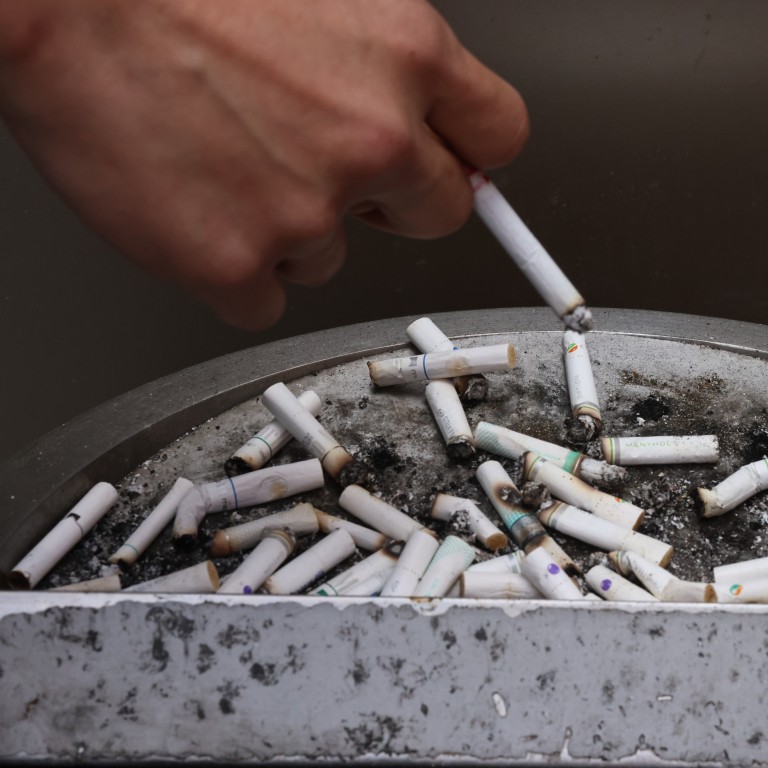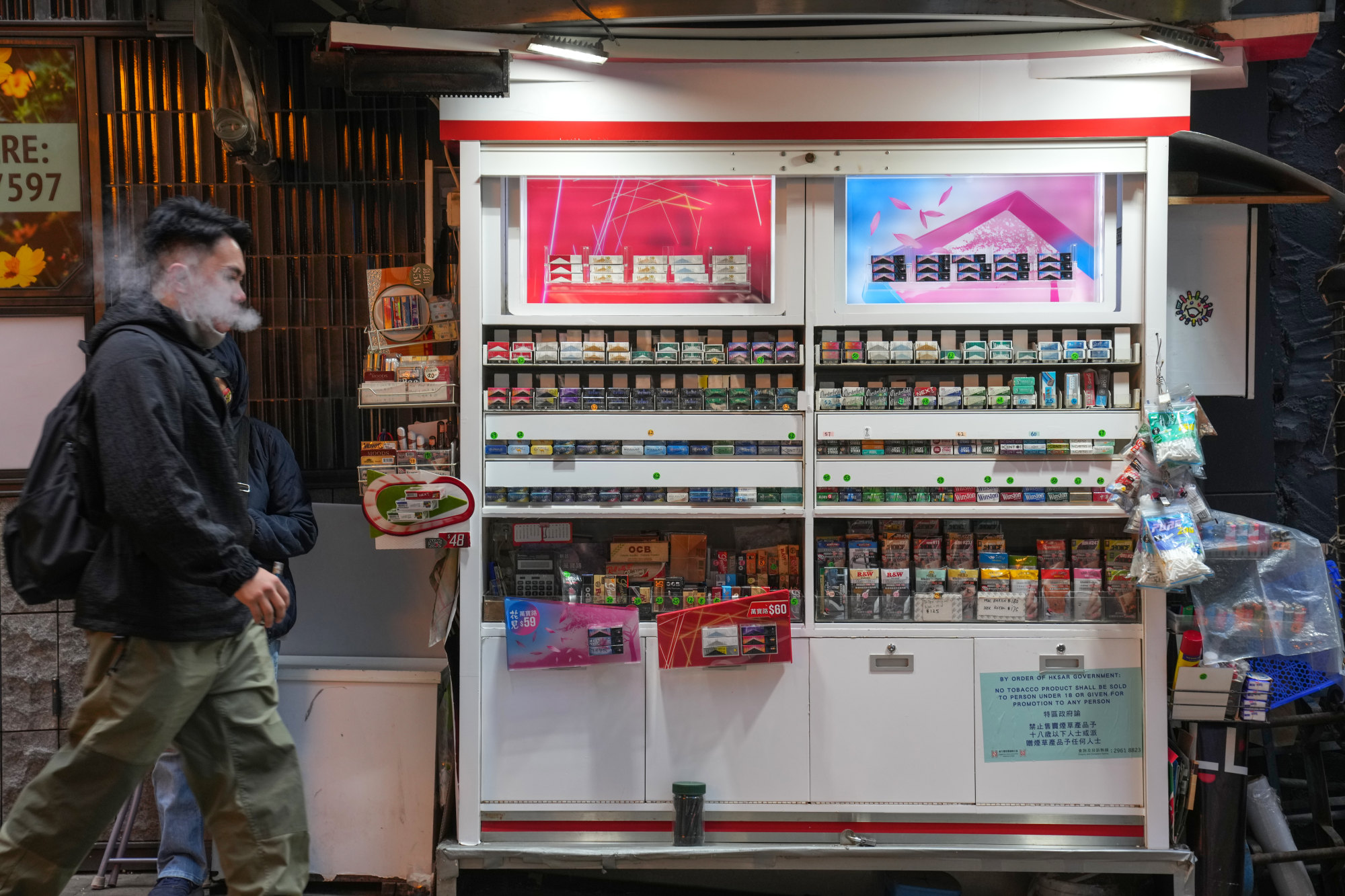
Hong Kong smoking survey sparks controversy over whether higher tax discourages cigarette use
- About 80 per cent of smokers predict doubling of tax will increase reliance on black market cigarettes, survey finds
- But anti-smoking campaigners highlight University of Hong Kong poll, which found most smokers would cut down or quit if cost went up
Doubling Hong Kong’s tobacco tax will drive smokers towards cheaper illicit cigarettes rather than discourage the habit, a lobby group has warned, citing the concerns of 80 per cent of users surveyed.
But the findings of the poll of more than 2,000 smokers and non-smokers released on Tuesday were immediately attacked by the government’s anti-tobacco advisers, who said the illicit trade in cigarettes had thrived for years even though the tax rate had remained unchanged.
The Long-term Tobacco Policy Concern Group interviewed 1,005 smokers and 1,010 non-smokers aged 18 or over in the street in December 2022 and again this month.

The poll was released in response to the Hong Kong Council on Smoking and Health proposal last year to increase the tax rate, which would push the cost of cigarettes to almost HK$100 (US$12.75) a pack.
Joe Lo Kai-lut, convenor of the concern group, said 80 per cent of smokers said they expected people would switch to cheaper options such as black market cigarettes after a tax increase. He added 73 per cent of non-smokers in the poll held the same opinion.
“The survey indicates that buying illicit cigarettes is quite easy,” Lo said. “Under this situation, increasing the tobacco tax to a great degree will push smokers to purchase illicit cigarettes, making the trade of such cigarettes more rampant.”
Lo highlighted that 67 per cent of smokers in the poll also said they had either seen or heard information on the sale of illicit cigarettes.
The government last year set a goal to reduce tobacco use from 9.5 per cent of the population to 7.8 per cent by 2025.
The Hong Kong Council on Smoking and Health, a government advisory group, proposed a 100 per cent increase in the tobacco levy last year as a first step towards the target.
‘Two-thirds of Hong Kong smokers to cut back on habit if cigarette prices rise’
But Lo said 68 per cent of respondents believed that tobacco control measures would not be effective if the black market in cigarettes was not stopped.
About 77 per cent of those surveyed agreed that the problem of illicit cigarettes existed in Hong Kong.
The poll found that 67 per cent of smokers and 57 per cent of non-smokers believed that it was easy for adults to source illicit tobacco products.
Lo added tobacco tax increases between 1983 and 1993 were effective in cutting tobacco use, but may not be at present because of the online sale of illicit cigarettes.
“People can now have illicit cigarettes delivered to their home by making a call or sending a text on WhatsApp or WeChat,” he said.
Lo’s group suggested the government introduce long-term measures such as the prevention or reduction of access to tobacco products by the young.
The group also suggested more education on stopping smoking, allowing the sale of e-cigarettes and heated cigarettes and a cut in the number of public smoking areas.
Hong Kong customs officers seize HK$190 million worth of black market cigarettes
But Henry Tong Sau-chai, chairman of the Hong Kong Council on Smoking and Health, disagreed with the survey’s findings.
He added that there was no evidence the level of tax on tobacco had a direct relation to the sale of illicit cigarettes.
“Hong Kong has not raised tobacco tax for eight years, but the illicit cigarette trade still continues,” he said.
Tong highlighted that a survey carried out by the University of Hong Kong last year found 67 per cent of 1,719 smokers canvassed said they would either reduce the number of cigarettes they smoked or quit altogether if the price increased.
He said that was proof that increased taxation would be an effective way to reduce smoking.

